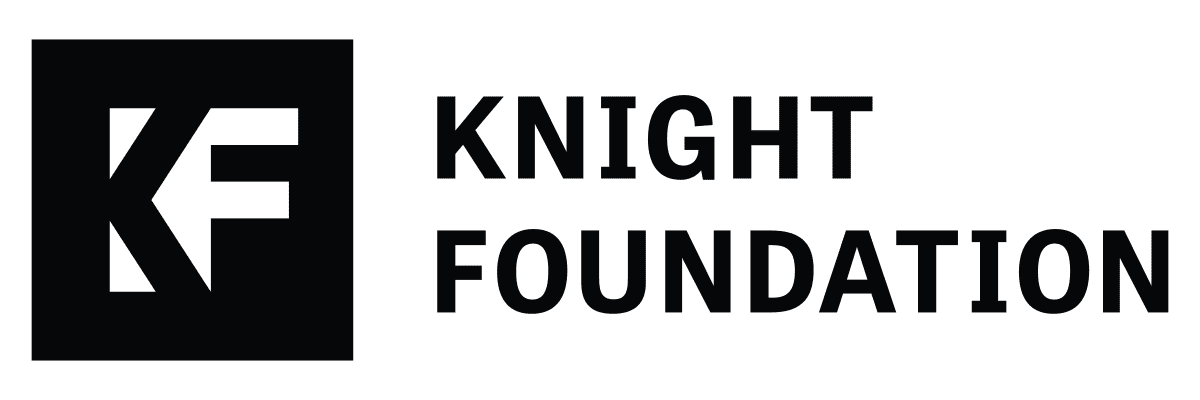Technology Insights from the Experts
Discover practical strategies from park practitioners across the country who have effectively used technological tools in their city’s parks. Learn firsthand how they’ve addressed challenges, delivered results, and improved park experiences—ideas you can adapt and implement in your own projects.
Highlights from Greater & Greener 2024
These programs in Seattle, WA were supported by the John S. and James L. Knight Foundation.
Keynote: How Tech and Data Can Help with More Equitable Use and Management of Parks and Public Spaces
by Jackie Lu, President & Co-Founder, Helpful Places, Toronto, Canada
Jackie shared how technology can be used responsibly for park practitioners better understand park usage/needs while also fostering public trust in digital systems.
Panel Dialogue: Revitalizing Public Spaces Through the Power of Technology
Park leaders uncovered new ways to engage community members, enhance users’ experiences, and improve the management and planning of public spaces through tech and data, with examples from Detroit, New York City, Philadelphia, and Toronto, all cities in the High Line Network’s Tech & Public Space Accelerator.
Panel Dialogue: Parks and Big Data: Fostering Public Trust in Digital Systems
Panelists shared how parks are using DTPR (Digital Trust for Places and Routines), an open-source communication standard that presents data to the public legibly and consistently, and how it can be used responsibly to both help park practitioners better understand park usage/needs AND foster public trust in digital systems.
Innovation Round: Using Technology & Data to Enhance Accessibility
Speakers shared examples of how technology and data are used to understand usage and improve access to parks and public spaces for equity.
Skill-Building Workshop: Using Data to Create Equitable Park Investment Strategies
This workshop showcased equitable investment strategies in Louisville, KY, Lynnwood, WA, and Detroit, MI, focusing on the types of data collection that help park practitioners inform their organization’s strategies, as well as the processes needed to pursue this work, like cross-sector leadership, community engagement, and a clear definition of equity goals.
Mobile Workshop: Cheasty Greenspace: Forest Trail Mapping with Mobile GIS Technology
This mobile workshop highlighted how Geographic Information Systems (GIS) technology can be used to map trail systems in Cheasty Greenspace, a 43+ acre forest in one of Seattle’s highest equity priority zones, enhancing team collaboration, spatial data analytics, and data-driven decision-making departmentwide
Peer Conversation: Data-Informed Decision-Making for Equitable Park Funding
Park leaders shared innovative ways they use data tools and resources to drive and justify funding decisions and investments, and how data is being used to address historic inequities in their cities through equitable investment action strategies.
Peer Conversation: Equitable Access to Recreation Programs and Facilities
Seattle Parks and Recreation (SPR) staff unpacked how they use technology and data to ensure recreation facilities and programs are used equitably, taking advantage of field equity analysis studies and recreation management software in unique ways to increase services for scholarship-eligible families.
Peer Conversation: Using Tech, Media, and Art for Youth Programming and Engagement
Park officials examined what approaches are being used post-pandemic to address youth violence in parks by leveraging technology, media, and art to better engage and program for the youth in our communities.
Five Takeaways on Technology in Public Spaces
Ryan Mottau, Director of Digital Engagement at MIG, shares key lessons from Greater & Greener 2024, about technology in parks, everything from big data, to sensors, to communicating about these technologies to our local communities.
Previous City Parks Alliance Programming
Webinar: Deploying Technology to Explore Park Usage and Impact
Guest speakers from The Underline in Miami and Boston Harbor Now shared how they are deploying technology to measure and understand park usage patterns, access issues, and the impacts of parks on the community and the environment. They also discussed the use of predictive modeling to make more informed maintenance and environmental design choices.
Webinar: Using Technology to Measure Park Use
Guest speakers from Memphis and Detroit park nonprofits discussed the different ways they’ve leveraged technology to understand how their parks are used, as well as how they’ve used this data to “make the case for parks” and provide a more responsive user experience.
Peer Conversation: Making Data Part of Your DNA: Operationalizing Data Processes
Members of the Minneapolis Park and Recreation Board’s Data Insights Team, which has centralized data and the projects it touches within the organization, shared their journey to a more coordinated, proactive, and organized approach to utilizing data across departments. Attendees then investigated strategies to make data part of their organization’s DNA.
Peer Conversation: Understanding Park Use Through Technology Tools
Staff from the Center City District in Philadelphia led a discussion on various technology tools they utilize, the types of data these tools provide, and how they apply this information in their work. Tools include counters and geo-fencing, which when used together, help them understand visitation patterns, some demographic information, and engagement with the space.
More to Come
Join us for additional City Parks Alliance virtual programming on this topic in 2025.
Join the Alliance for access to member-exclusive programming and subscribe to our mailing list to be the first to know when event registration opens.
Support for this initiative is provided by:
